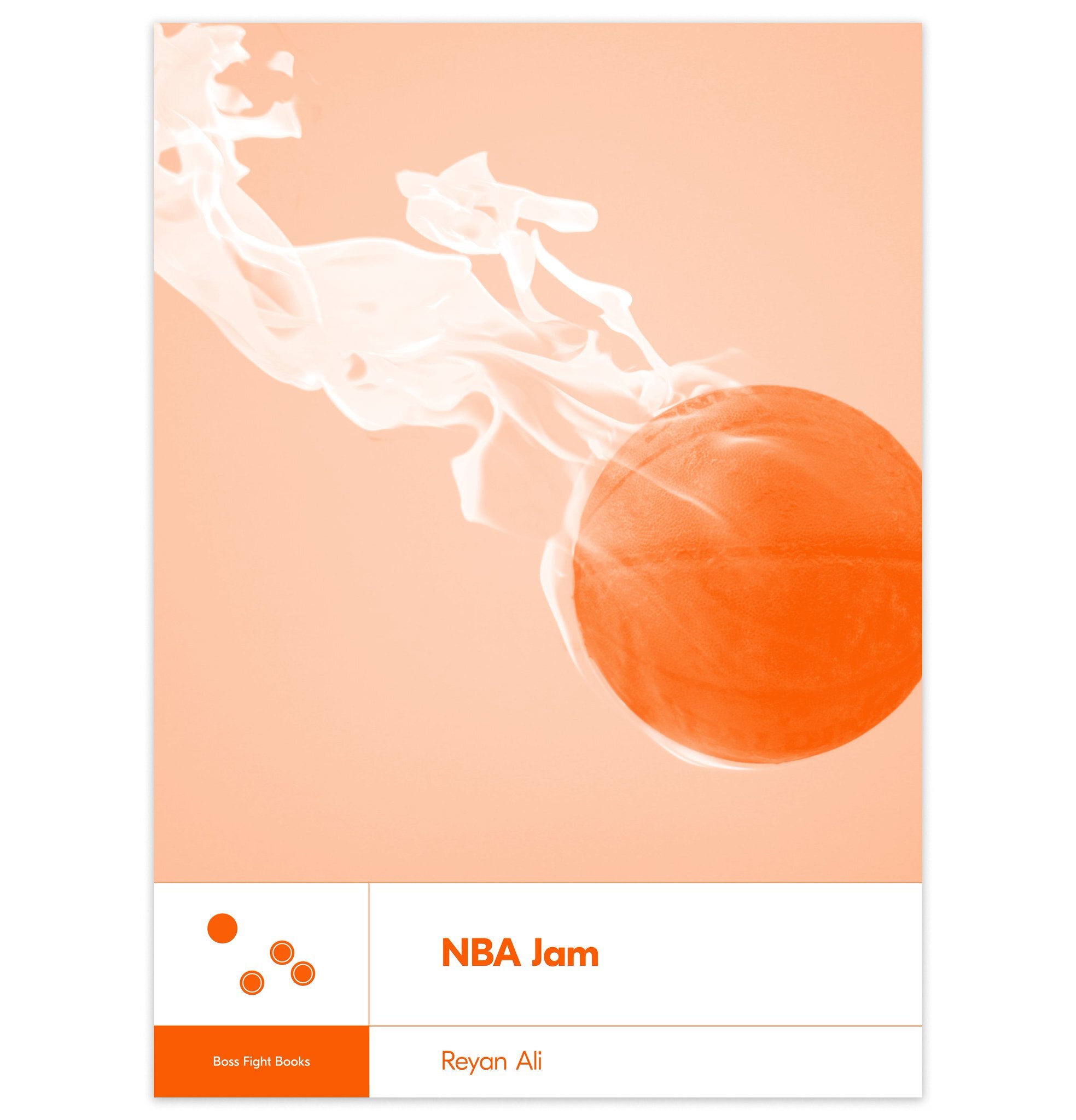NBA Jam by Reyan Ali
NBA Jam
Reyan Ali
Boss Fight Books, 2019
ISBN 13: 978-1-940535-20-3
The game NBA Jam was built on mythos—there was something about the arcade cabinet that seemed otherworldly, and not just in the gregarious gameplay, where super-athletes became super-super-athletes: mystifying dunks that soared off of the top of the screen before crash landing with a satisfying chunk through the hoop, and an automatic Player 2 sprint to get back to the other end of the court. Instead, it seemed like a game where literally anything was possible, and so rumors started to fill up the stat sheet: that if you pressed the right amount of buttons you could unlock Jordan, that if you won by 69 points you could unlock cheerleaders (topless, of course!) as playable characters. The hidden Mortal Kombat court that (actually!) turned out to be true. A game with this much bravado and bombast seemed to always be hiding something just below the surface—not to mention that whenever we see something this loud and exaggerated, we constantly believe that there is more to it—the same way Shawn Kemp dunked over the Space Needle in the posters in our bedroom; poster-izing Alton Lister somehow just doesn’t seem enough.
Despite videogames seeming often that they are made of something magic and ethereal, they are, in fact, made by actual people of this world. Reyan Ali’s book NBA Jam, from the excellent Boss Fight Books imprint, which has individual writers doing deep dives into classic video games, discusses the sheer amount of work that goes into play: taking us through Jam’s days as a hyper serious basketball simulation in order to impress the licensing board of The Association, to an in-depth look at arcade cabinet development and marketing during its heyday in the mid-90s. Ali proves himself to be an expert at gathering information, from interviews with GamePro editors and Midway developers, to scouring the depths of arcade message boards to post loud nostalgia on his excellent @NBAJambook Twitter account—unearthing unused cover art for video games that entered our lives for the length of a Blockbuster video rental, then disappearing from our memories until Ali unlocks them like Air Dog (who, as you learn from the book, was the son of Acclaim’s Licensing and Marketing Director).
Like all greats, NBA Jam was essentially forced into retirement after multiple unsuccessful comeback attempts, all never living up to the massive hype of the original and its bigger and wilder Tournament Edition. In Ali’s interview with programmer Shawn Liptak, Liptak says, “I don’t expect to replicate that for the rest of my life. It’s one of those magic moments where the right place, the right time, and the right stuff came together to make that product.” And there it is, straight from one of the programmers themselves: there was magic in that game and all that surrounded it. Despite Ali’s exhaustive research, interviews, and expert analysis of how Jam came to be, it’s clear that Ali believes that there is magic here too: that at the end of all the excavation, there is still mystery—the same way when we observe a twisting dunk in-slow motion from every angle, we still say, out loud to no one, how did he do that?
BRIAN OLIU teaches, writes, and fights out of Tuscaloosa, Alabama. His publications include three chapbooks and five full-length collections of nonfiction, ranging on topics from Craigslist Missed Connections, to computer viruses, to the Rocky film series, to the arcade game NBA Jam. His newest book of essays, Body Drop: Meditations on Fandom and Pain in Professional Wrestling is forthcoming in 2021 by The University of North Carolina Press. Follow him on Twitter @BrianOliu.


